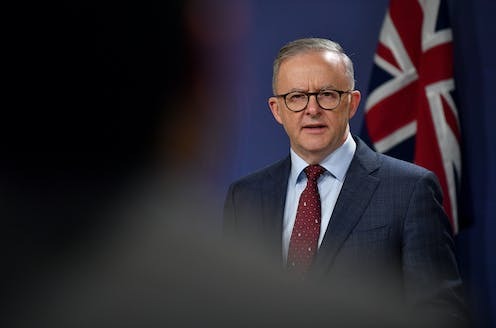Australian Prime Minister Anthony Albanese confirmed he will "imminently" call a national election, likely in May, as his center-left Labor government pushes new tax relief measures to regain voter support. With the country constitutionally required to hold elections by May 17, the race is heating up, with polls showing the opposition Liberal-National coalition narrowly ahead.
Speaking to Triple M radio, Albanese said, “I’m not calling it today, but I will call it soon. I think Australians want to get on with it.” The move follows a surprise announcement in Tuesday’s federal budget of A$17.1 billion in new tax cuts aimed at easing the cost-of-living crisis.
Under the revised tax plan, workers earning an average income would receive an additional A$268 in the 2026–27 fiscal year and A$536 the year after. However, this is lower than the current year’s A$1,654 tax relief. The bill passed the Senate late Wednesday with support from the Greens and independents, despite Labor lacking a majority.
The opposition, led by Peter Dutton, criticized the plan, promising to repeal it if elected and instead cut the fuel excise in half for a year—estimated to save families around A$750 annually. Dutton labeled it “real, immediate relief,” while Treasurer Jim Chalmers argued the opposition’s plan offers limited benefits and would leave Australians worse off.
“This decision will haunt them every single day of the election campaign,” Chalmers warned, highlighting the high-stakes battle as both sides fight to win over voters burdened by rising costs.
As election season looms, economic relief remains a key battleground, with tax cuts and cost-of-living measures taking center stage.



 Pentagon Ends Military Education Programs With Harvard University
Pentagon Ends Military Education Programs With Harvard University  Nighttime Shelling Causes Serious Damage in Russia’s Belgorod Region Near Ukraine Border
Nighttime Shelling Causes Serious Damage in Russia’s Belgorod Region Near Ukraine Border  Trump Allows Commercial Fishing in Protected New England Waters
Trump Allows Commercial Fishing in Protected New England Waters  India–U.S. Interim Trade Pact Cuts Auto Tariffs but Leaves Tesla Out
India–U.S. Interim Trade Pact Cuts Auto Tariffs but Leaves Tesla Out  TrumpRx Website Launches to Offer Discounted Prescription Drugs for Cash-Paying Americans
TrumpRx Website Launches to Offer Discounted Prescription Drugs for Cash-Paying Americans  South Korea Assures U.S. on Trade Deal Commitments Amid Tariff Concerns
South Korea Assures U.S. on Trade Deal Commitments Amid Tariff Concerns  New York Legalizes Medical Aid in Dying for Terminally Ill Patients
New York Legalizes Medical Aid in Dying for Terminally Ill Patients  Trump Allegedly Sought Airport, Penn Station Renaming in Exchange for Hudson River Tunnel Funding
Trump Allegedly Sought Airport, Penn Station Renaming in Exchange for Hudson River Tunnel Funding  Trump’s Inflation Claims Clash With Voters’ Cost-of-Living Reality
Trump’s Inflation Claims Clash With Voters’ Cost-of-Living Reality  U.S. Lawmakers to Review Unredacted Jeffrey Epstein DOJ Files Starting Monday
U.S. Lawmakers to Review Unredacted Jeffrey Epstein DOJ Files Starting Monday  Trump Endorses Japan’s Sanae Takaichi Ahead of Crucial Election Amid Market and China Tensions
Trump Endorses Japan’s Sanae Takaichi Ahead of Crucial Election Amid Market and China Tensions  Japan Election 2026: Sanae Takaichi Poised for Landslide Win Despite Record Snowfall
Japan Election 2026: Sanae Takaichi Poised for Landslide Win Despite Record Snowfall  TrumpRx.gov Highlights GLP-1 Drug Discounts but Offers Limited Savings for Most Americans
TrumpRx.gov Highlights GLP-1 Drug Discounts but Offers Limited Savings for Most Americans  Iran–U.S. Nuclear Talks in Oman Face Major Hurdles Amid Rising Regional Tensions
Iran–U.S. Nuclear Talks in Oman Face Major Hurdles Amid Rising Regional Tensions  Trump Signs “America First Arms Transfer Strategy” to Prioritize U.S. Weapons Sales
Trump Signs “America First Arms Transfer Strategy” to Prioritize U.S. Weapons Sales  Trump Lifts 25% Tariff on Indian Goods in Strategic U.S.–India Trade and Energy Deal
Trump Lifts 25% Tariff on Indian Goods in Strategic U.S.–India Trade and Energy Deal 































